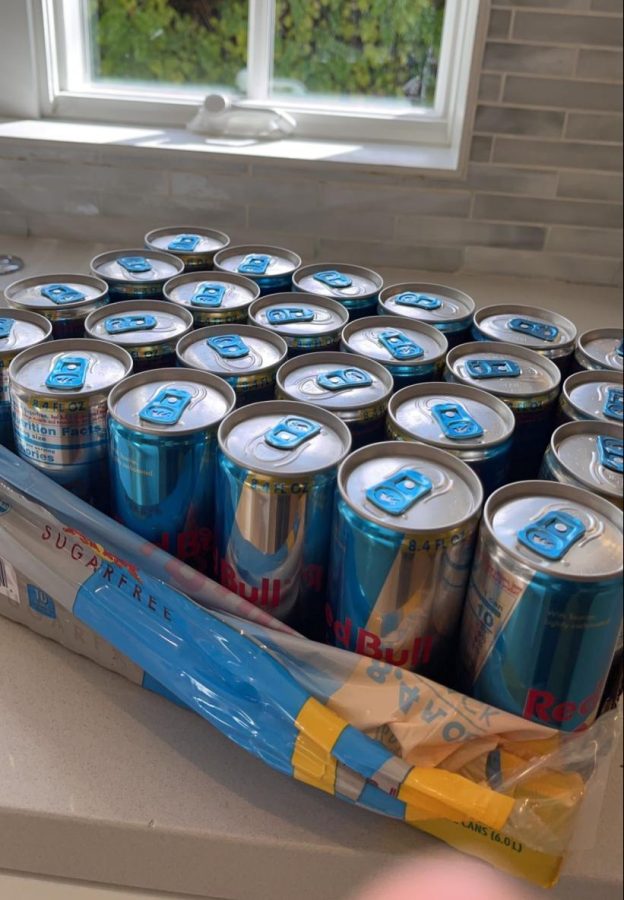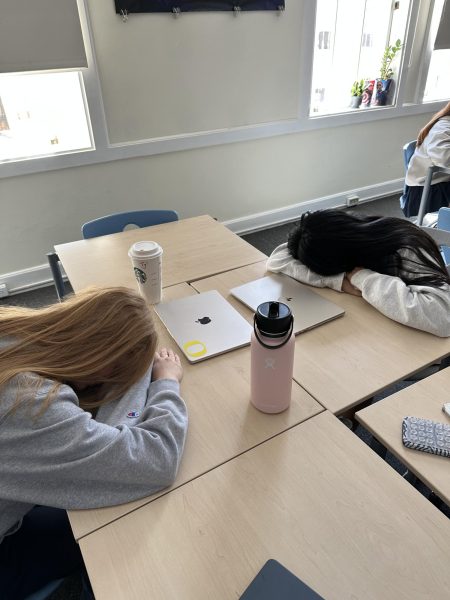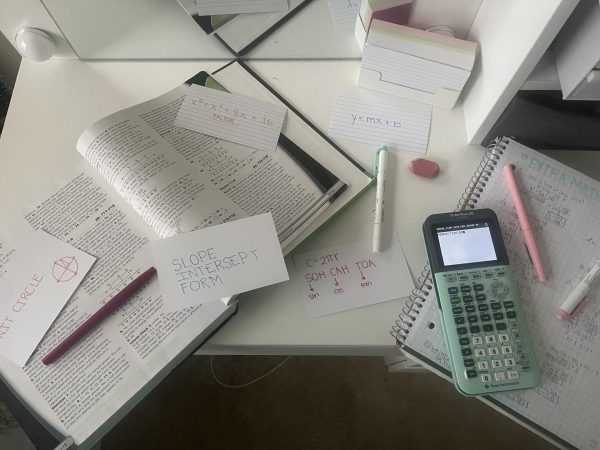NDB students are too dependent on caffeine
The Catalyst / Molly Phan
Students rely on caffeinated drinks to boost their energy levels.
In every class, desks are lined with coffee and energy drinks, and students carrying a water bottle are more likely to have it filled with something more caffeinated than water. The most common drinks are those like coffee, tea or energy drinks. It seems that NDB students have been swept up by addiction, a caffeine addiction.
Energy drinks like Red Bull and Monster Energy have always been popular. Still, drinks like Celsius, Starbucks BAYA Energy and Alani Nu have had a recent surge among students for their healthier appeal, marketed as sports drinks to increase performance levels. Guayaki Yerba Mate has also been common for being a flavored herbal tea with amplified caffeine levels. These drinks advertise low sugar and high caffeine levels, which are irresistible to students who spend their evenings studying and working.
Coffee has held consistent popularity among students, and this is a beverage many prefer. Many students stop by their local Starbucks before school to get their daily coffee fix. Brands like La Colombe, High Brew Coffee and Starbucks have made these drinks accessible in a canned form.
Since companies have managed to market caffeinated drinks as a sweet treat that also provides an energy boost, students are attracted to buy these drinks on a regular basis. However, these drinks do not come without consequences.
Caffeine is a type of drug known as a stimulant, which means that it speeds up the central nervous system. This provides a temporary boost of energy and alertness. It is found naturally in coffee beans, tea leaves and more.
According to the University of Michigan Health, teenagers should not consume more than 100 milligrams of caffeine a day. However, one Celsius energy drink, for example, contains 200 milligrams of caffeine, exactly double the amount one should intake. Teenagers today consume less soda compared to a decade ago, but an increase in the popularity of coffee and energy drinks has kept caffeinated drinks popular among young adults.
Even when consuming the recommended levels of caffeine, teenagers are still more susceptible to anxiety, dehydration and insomnia. Students feeling stressed or tired from school may actually feel worse when drinking a caffeinated drink, despite the idea that it will give them the energy boost they need.
Being aware of caffeine’s detrimental impact is crucial for students to set boundaries and know their limits. Senior Kendall Duffy reflected on how caffeinated drinks have affected her and how she tries to regulate her consumption.
“Drinking coffee does not give me energy. Instead, it gives me a short burst of alertness, which is followed by a prolonged period of tiredness,” said Duffy. “I never have more than three coffees a week and I occasionally will get it decaf.”
Teachers have also noticed an increase in caffeine consumption, especially in higher grade levels. When students are tired in class due to a caffeine crash, teachers are affected as they are unable to teach their lessons and receive full attention. Some teachers are also worried about what students are putting in their bodies and if it is truly beneficial to their education.
“I don’t know how good it is for people in the long run,” said Math Department Chair Jennifer Walton. “I think a lot of times people are drinking sugary drinks, which I don’t think are that great.”
Consuming heavy amounts of caffeine on a regular basis can lead to other problems down the road. It can cause the development of anxiety, difficulty sleeping, irritability, headaches and more.
To avoid developing a dependency on caffeine and enduring its adverse effects, students should try lower-caffeine alternatives and determine their reasons for needing caffeine. If students drink coffee because they lack energy and feel tired, they should aim to go to sleep earlier and prioritize their rest. When an energy boost is still needed, students can try drinking teas, like black and green tea, which still contain caffeine but at significantly lower levels.

Hannah is a senior at Notre Dame Belmont, and it is her second year writing for The Catalyst. Her previous involvement in the Journalism Club has interested...

Molly Phan is a senior at NDB and it is her third year with The Catalyst. She was involved in the journalism club her sophomore year and served as the...









